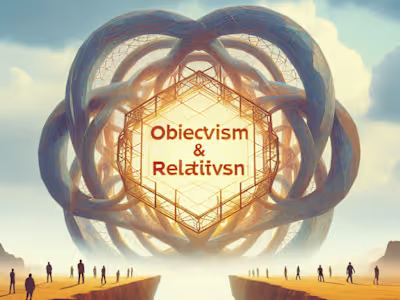Work Sample: Critical Summary
Like this project
Posted Jan 5, 2024
Wrote a Critical Summary on Martin Heidegger's 'The Question Concerning Technology' during my internship with Dr. Brainer Prince who did his Ph.D. at Oxford.
Likes
0
Views
0
Critical Summary on Martin Heidegger's 'The Question Concerning Technology'
Martin Heidegger's "The Question Concerning Technology" is an extremely influential essay that explores the relationship between technology and human existence. In this essay, Heidegger challenges the traditional understanding of technology as a neutral tool or means to an end, and argues that technology is a way of revealing or un-concealing the world. He claims that this difference is phenomenal and not insignificant, that it fundamentally shapes human experience. Most still consider Heidegger's insights into the nature of technology to be relevant even in today's world (while utilitarians such as myself do not pay much heed to these distinctions), as they grapple with the (perceived) increasingly pervasive role of technology in their lives and its impact on their understanding of what it means to be human.
One of Heidegger's key insights is that technology is not simply a neutral tool that we use to achieve our goals. Rather, according to him, technology is a way of revealing or un-concealing the world that shapes our understanding of what is possible and desirable. In Heidegger's own words, technology is a "mode of revealing" (p. 13) that "challenges forth" (p. 13) things from their natural state of hiding, making them available for human use and manipulation. This means that, according to him, technology is not just a means to an end, but a way of seeing and understanding the world that is intertwined with our very being. That is rather obvious, as in this modern era, technology has allowed our lives to be intertwined with the lives of several people all across the planet, much beyond our physical reach. And just as a door opens two ways, it has allowed them to intertwine their lives with ours. We are intertwined with this world, because it is of this world that we are born.
Heidegger's critique of technology is grounded in his broader philosophical project of questioning the nature of human existence, which is a part of what is known as 'Metaphysics'. He argues that technology represents a kind of"enframing" (p. 14) of the world that reduces everything to a standing reserve or resource for human use. This enframing, he claims, is not limited to technological objects, but extends to the natural world as well. For Heidegger, the enframing of the natural world is exemplified best by modern agriculture, which treats the land as a standing reserve to be exploited for human use. This kind of thinking leads to a disregard for the natural world and a loss of respect for its intrinsic value. This thinking, J feel, is incorrect. One cannot state that man is intertwined with the planet and then criticize the same man for looking to make the best of this co-dependency. Man looked to the land for a living when he looked to the animals and the trees for food. Sometimes, animals looked towards man for food (although that happens very rarely nowadays). Man does not disregard that which allows him to create sustenance, he simply seeks to better his sustenance as much as possible. There is a vast difference between the two.
Heidegger's critique of technology is not simply a rejection of modern technology, but a call for a deeper understanding of its nature and its relationship to human existence. He argues that the danger of technology lies not in its existence per se, but in the way that it shapes our understanding of what it means to be human. By reducing everything to a 'resource' perspective, i.e., an 'I-it' perspective, technology limits our sense of what is possible and desirable. Heidegger's call for a deeper understanding of technology is therefore interpreted by some as a call for a broader understanding of human existence and our relationship to the world around us.
One of the most significant implications of Heidegger's critique of technology is his rejection of the traditional understanding of progress. For Heidegger, progress is not simply a matter of advancing technology or increasing efficiency, but a fundamental reorientation of our relationship to the world.
This is due to the fact that Heidegger also thought that the extermination of millions of Jews would lead the German motherland into a period of unexpected growth and establish it as a flourishing nation on the planet. Heidegger's involvement with Nazis has been established very comprehensively. I do not feel one should pay heed to what a Nazi considers Progress, but I consider academic progress to be the granting of better grades, which is why I am compelled to devote hours of my time to understanding this man.
This reorientation involves a shift away from the instrumental use of technology towards a more contemplative and respectful relationship with the natural world. Heidegger argues that this shift requires a fundamental transformation of our understanding of what it means to be human and our place in the world.
Heidegger's critique of technology is not without its critics. Some have argued that his rejection of technology is overly pessimistic and fails to account for the benefits that technology has brought to human life. I count myself within these 'Some'. Others have questioned the degree to which Heidegger's critique of technology is applicable to contemporary technological developments, which have become increasingly complex and autonomous.
One important aspect of Heidegger's philosophy of technology that deserves further exploration is his critique of modern science and its role in shaping our understanding of the world. For Heidegger, modern science is not just a method for investigating the natural world but a particular mode of thinking that has come to dominate all aspects of human life. He sees modern science as part of a larger cultural movement that values rationality, efficiency, and control over everything else, although I fail to see what principles exist that one can place above these. In this way, Heidegger feels, science has become a way of thinking that reduces the world to a series of objects to be manipulated and controlled for our purposes.
Heidegger argues that this reduction of the world to objects is the root of our current ecological crisis. By treating the natural world as a resource to be exploited for human benefit, we have lost touch with the deeper meaning and value of the world around us. He calls for a new mode of thinking that is more attuned to the rhythms and patterns of nature, one that sees the world as a web of interrelated beings rather than a collection of isolated objects. This mode of thinking he calls "poetic dwelling," which involves a deep appreciation for the world around us and a willingness to listen to its voice and respond to its needs.
Heidegger also has a fascination with language and etymology. He argues that the dominant language of our time is the language of technology, which reduces the world to a series of objects to be manipulated and controlled. This language, he feels, has become so pervasive that it is difficult to imagine any other way of speaking about the world. He calls for a new language that is more attuned to the deeper rhythms and patterns of nature and that is more open to the mystery and wonder of the world around us. This new language he calls "poetry," which involves a way of speaking that is more attuned to the rhythms and patterns of nature and that is more open to the mystery and wonder of the world around us.
Despite these criticisms, Heidegger's insights into the nature of technology continue to be considered today, much to my chagrin. As some grapple with the impact of technology on our lives and our understanding of what it means to be human, Heidegger's call for a deeper understanding of technology and its relationship to human existence remains a pressing concern. However, I feel that progress must be valued, and given how important technology is to progress, one must not keep building castles in the sky with foundations of new languages of 'Poetry'. One must look only to better the quality of life of those who cannot afford to do so themselves, albeit sustainably. Actually, as the final sentence to this critical essay, I wish to generalize Heidegger's entire viewpoint throughout this essay as that of being a proponent of Sustainable Development, although he's so deeply rooted in his environmentalist values that he sometimes values the preservation of nature over any development whatsoever.





